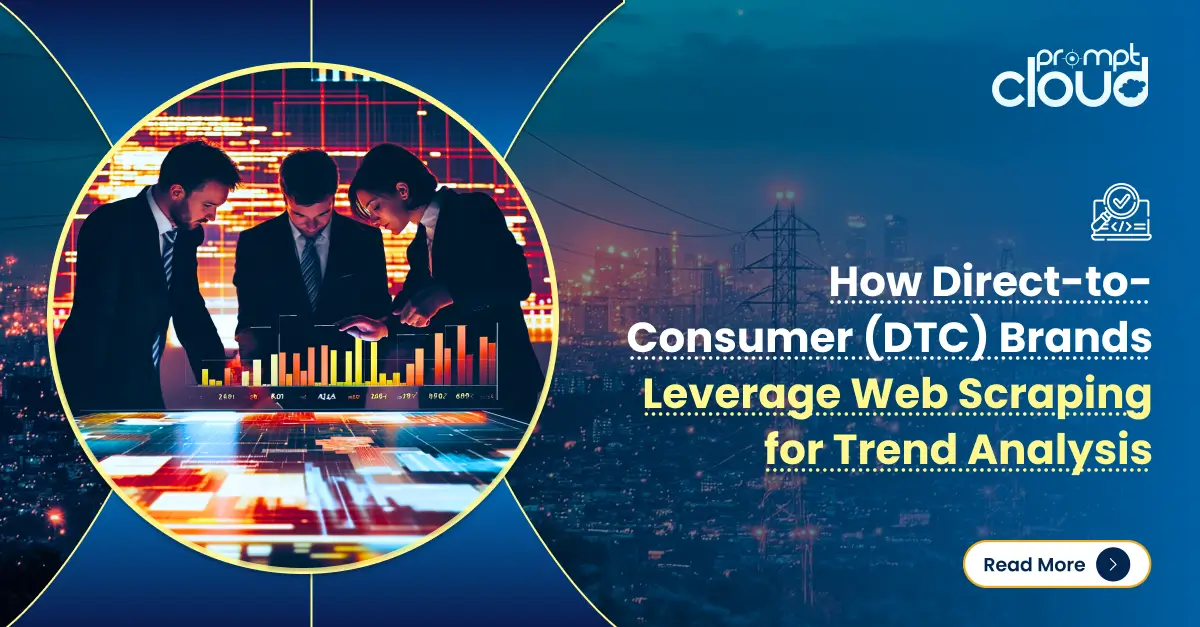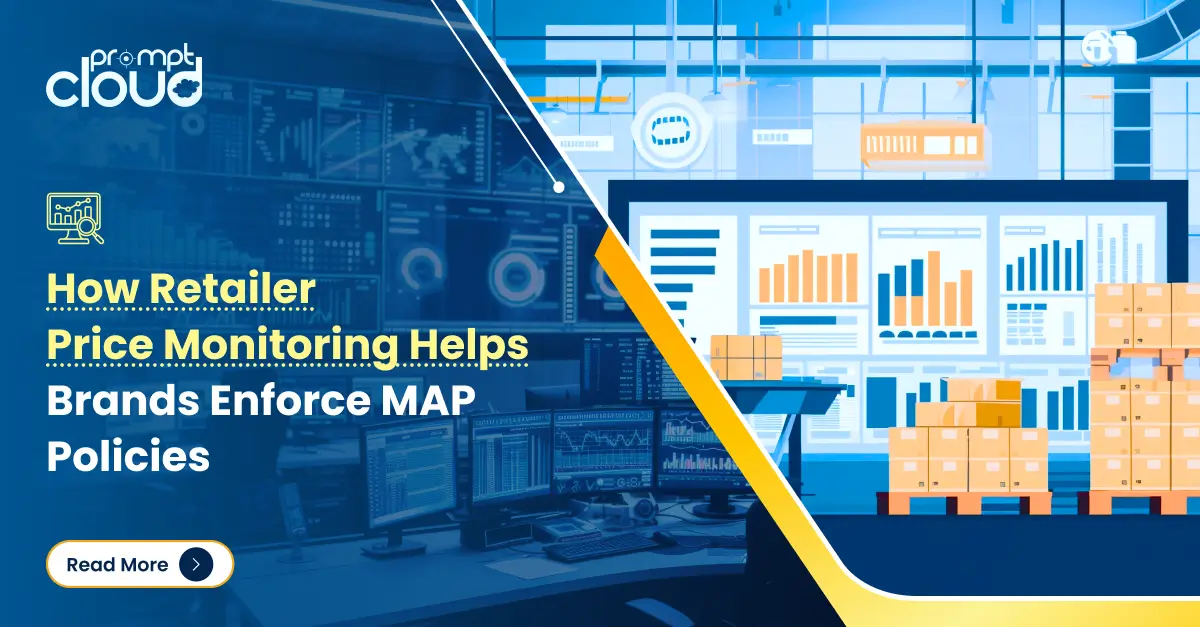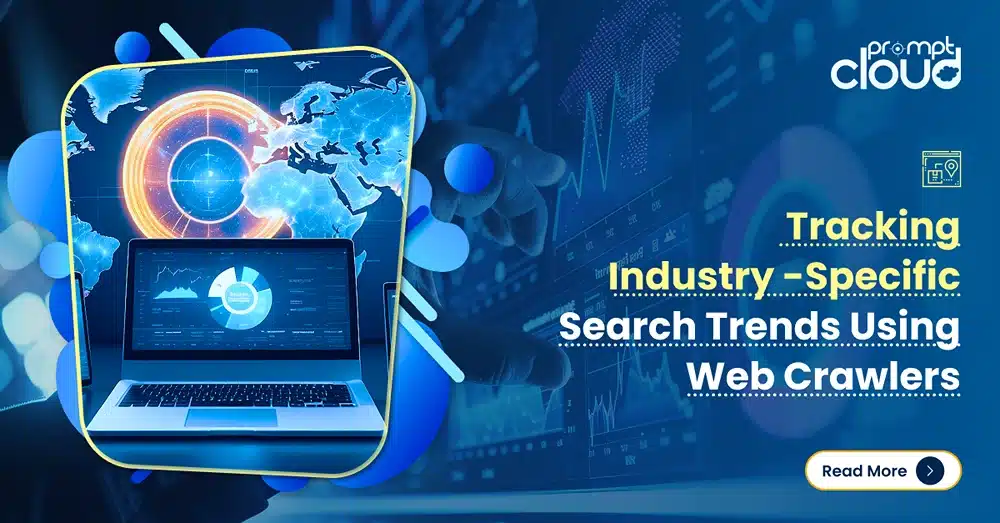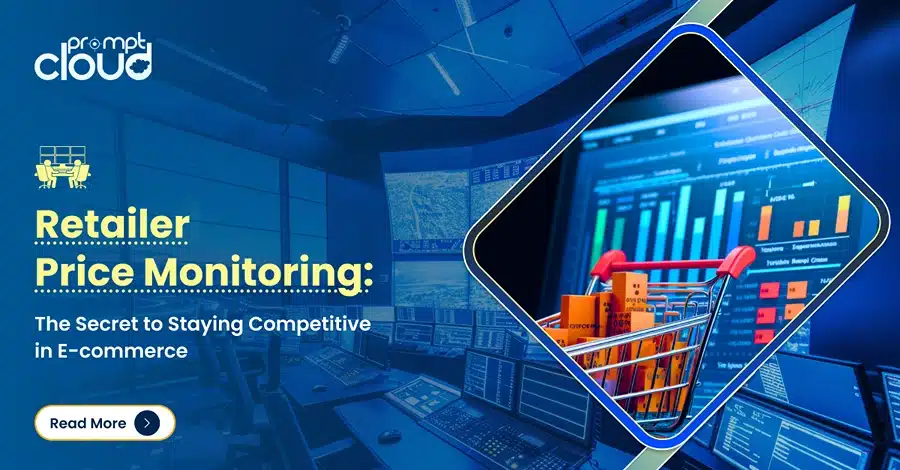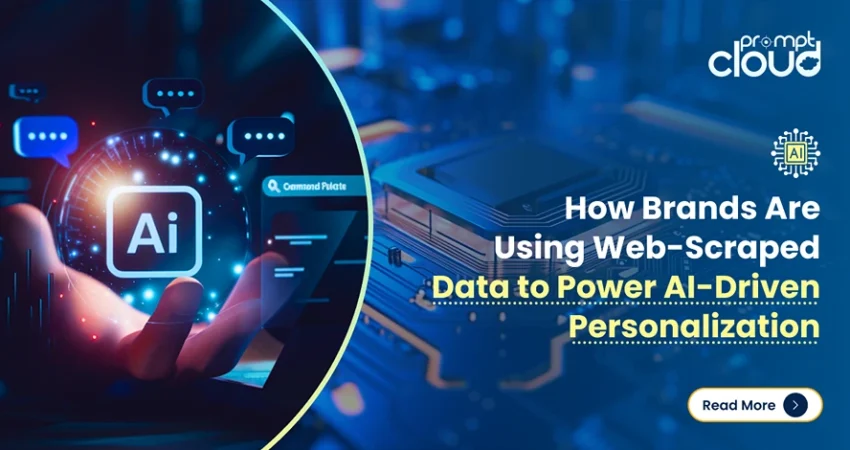
Businesses around the globe are undergoing digital transformations. While some of them are adopting the general approaches to hyper-personalization, others who have more advanced technological infrastructure are trying to build industry-specific solutions. To achieve these ends, cutting-edge artificial intelligence is being leveraged.
However, the effectiveness of machine learning models largely depends on the quality of the information being provided. As a result, the wide variety of information on the web has become a focal point for data engineers to implement their web scraping procedures and collect useful structured data to train their models.
AI for data analytics plays a crucial role in turning raw, unstructured web data into actionable insights. From e-commerce recommendations to dynamic pricing strategies, brands are using AI solutions for data analytics to make informed business decisions.
This article explores how businesses use web-scraped data to power AI-driven personalization and why it’s becoming a necessity in today’s digital world.
AI for Data Analytics: The Foundation of Personalization
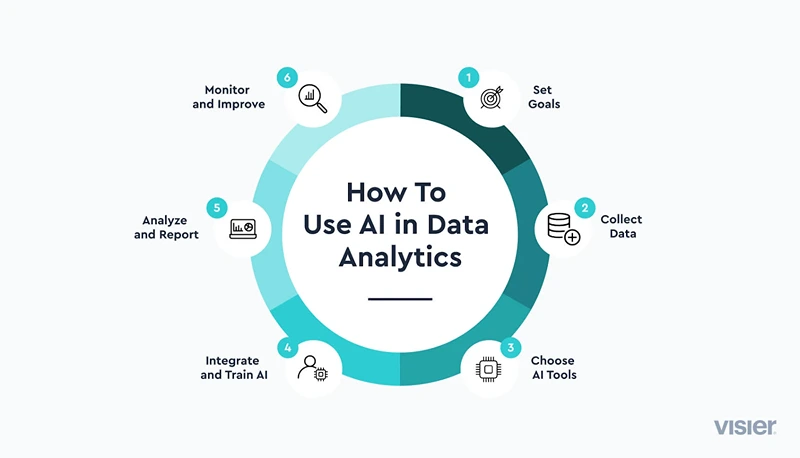
Image Source: Visier
The advancement of technology has completely revolutionized the world, and as a result, the way companies utilize structured data has changed. AI for data analytics provides deep insight into the analytics of vast ranges of information, collecting specific parameters and hyper-targeted marketing. Industries vastly benefit from data-hyper personalization, integrating with eCommerce systems, and optimizing expert systems.
An example is an online retail shop that uses AI tools for Data Analytics to retrieve and analyze web-scraped data from competitor sites, social media, and customer reviews. The AI system forecasts the clothing styles that are likely to be in demand and adjusts the product recommendations.
Content such as product descriptions, emails, and even chatbots can be tailored to serve each customer individually thanks to generative AI for data analytics. Using such AI personalization technologies guarantees the automatic tailoring of messages and conversations to the most personally relevant level possible.
What Role Does Web Scraping Play in AI Personalization?
Personalization by AI works based on rich datasets that can efficiently train machine learning algorithms. Businesses’ data scraping tools help them collect sufficient data from social media, online reviews, competitor websites, news articles, etc. With AI for data analytics, this information improves customer profiling and predictive modeling accuracy.
E-commerce platforms like Amazon leverage web-scraped data to study consumer sentiment, track trending products, and optimize their recommendation engines. A report by McKinsey & Company found that businesses that personalize customer interactions can increase revenue by up to 15%. This underlines the importance of AI-driven personalization, especially when quality data is available.
How Brands Use AI-Driven Personalization with Web-Scraped Data

Image Source: Miquido
1. Enhancing Customer Experience with Tailored Recommendations
Recommended content has become an important aspect of advanced marketing technologies. Amazon and Netflix, for example, employ AI for data analytics to identify products and content that users are most likely to purchase or consume based on their browsing history and purchase trends.
Through web scraping review websites and forums, brands gather information about consumers’ interests which was unheard of before. Such information allows businesses to build more accurate recommendation engines by feeding data into generative AI for data analytics that is responsive to user actions in real-time.
2. Optimizing Dynamic Pricing Strategies
Dynamic pricing is yet another strong suit for the application of AI personalization. For example, retailers and travel companies use AI for data analytics to change pricing according to demand, competitor prices, and market conditions.
Scraping data from e-commerce and flight booking sites enables better business pricing decisions. For example, airlines continuously monitor ticket prices and adjust their fares in real-time which ensures competitiveness and maximized profits.
3. Improving Customer Sentiment Analysis
For a well-tailored experience, businesses need to understand the way a consumer feels about a product or service. Businesses can scrape customer sentiments off social media platforms, review sites, and forums making them available in real time.
Such data can be analyzed by AI tools for data analytics to determine whether the trends are positive or negative. In case a customer expresses dissatisfaction with a feature, a brand can leverage AI-powered insights to resolve the matter promptly. This degree of customization enhances customer satisfaction while boosting loyalty to the brand.
4. Creating AI-powered chatbots for Better Engagement
AI chatbots are critical to customer service. These bots rely on web scraping data to fuel their knowledge about industry trends, customer questions, and competitor services.
An example is an AI chatbot for an online fashion store that can retrieve real-time data on trending styles from competing fashion blogs and websites. Such abilities enable the bot to make relevant outfit suggestions, thereby enhancing the shopping experience.
5. Generating Hyper-Personalized Marketing Campaigns
Generative AI for data analytics can now help brands custom-make emails, ads, and even entire advertisement strategies targeted at an individual. Through web scraping, AI has access to data concerning a customer’s age, interests, purchasing habits, and more, and therefore can create personalized marketing messages.
AI can assist retailers in tailoring their marketing strategies. For example, an online electronics retailer can determine which smartphone models are selling the most using web analysis. AI can then use these insights to create email campaigns marketing the appropriate products to the appropriate customers to deepen engagement and improve conversion.
Real-World Use Cases of AI-Driven Personalization
Personalization using AI through web-scrapped data has already changed several industries. Below are some examples in practice:
E-Commerce: Personalized Shopping Journeys
Amazon and eBay, along with a host of other online shops, have integrated AI for data analytics solutions which allow them to study consumer behavior trends and anticipate their purchases, tailor offerings, and even try to maintain sentiment by monitoring competitor prices.
Travel & Hospitality: Smart Pricing and Personalized Itineraries
Expedia and Airbnb, along with other travel websites, deploy AI for data analytic tools to harvest data from a multitude of sources like flight booking sites, various hotel reviews, and travel blogs. This has led to the dynamic adjustment of prices and personalized travel recommendations.
Financial Services: AI-Driven Credit Scoring and Fraud Detection
Financial institutions and banks use AI data analytics to monitor financial activity, customer transactions, and emerging fraud trends. Web-scrapped information helps AI algorithms mitigate fraud risk and enhance credit scoring techniques.
How Businesses Can Get Started with AI-Powered Personalization
If your organization wishes to take advantage of AI personalization using data obtained from the internet, here’s a roadmap to follow:
1. Identify Key Data Sources
Businesses need to determine which web data sources are most relevant. This could include customer reviews, competitor pricing, social media conversations, and industry reports.
2. Use Ethical Web Scraping Techniques
A company must adhere to ethical and legal standards when collecting data. Avoiding legal problems requires compliance with GDPR and CCPA legislation.
3. Implement AI Solutions for Data Analytics
Employing AI for data analytics enables firms to more easily process and analyze large volumes of scraped data. This data can then be used by machine learning algorithms to devise actionable personalization plans.
4. Continuously Monitor and Improve AI Models
There is no endpoint to AI-enabled personalization. Brands need to improve their AI models per consumer interaction data and market shifts.
The Challenges of Using Web-Scraped Data for AI Personalization
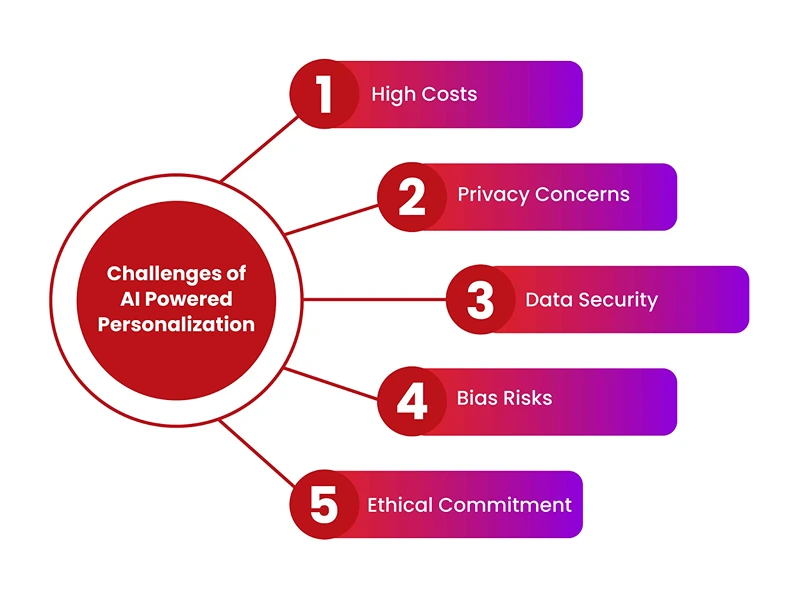
Image Source: Iksula
Even though data obtained from websites is very useful, it has its disadvantages. Businesses struggle with accuracy, legal frameworks concerning data privacy, and sinking legal taxes. Some notable difficulties include:
- Data Quality and Relevance: Not all scraped data is useful. AI models need high-quality, relevant data to deliver accurate personalization.
- Regulatory Compliance: Businesses have to observe data privacy such as GDPR and CCPA when utilizing data from the internet.
- AI Bias and Ethical Considerations: AI systems have a chance of being poorly trained, leading to biased suggestions that could be detrimental to the experience of the end-user.
To overcome these challenges, businesses must use ethical data scraping practices, verify data sources, and implement bias-detection mechanisms in their AI systems.
The Future of AI-Driven Personalization with Web-Scraped Data
As AI technology evolves, brands will continue to find innovative ways to use AI for data analytics. With advancements in machine learning and natural language processing, AI solutions for data analytics will become even more precise in predicting customer behavior.
A study by Gartner predicts that by 2025, AI-driven personalization will enable brands to increase profits by 20%. This indicates that businesses that leverage AI tools for data analytics and high-quality web data will gain a competitive edge in the market.
Conclusion
Data collected from the web is proving to be the greatest asset for AI-driven personalization. Companies are using AI for data analytics to provide improved customer recommendations, optimize pricing policies, and create unique, tailored experiences. With that being said, ethical challenges and the accuracy of data continue to be important.
As more companies integrate AI technologies into their systems, the ability to harness real-time web data efficiently will make the difference. Responsible AI implementation while providing bespoke services will ensure business success in the intelligent automation era.PromptCloud specializes in custom web scraping solutions, helping businesses gather the data they need to power AI-driven insights. If you’re ready to take your personalization strategy to the next level, get in touch with us today, and let’s build data-driven AI solutions together.











